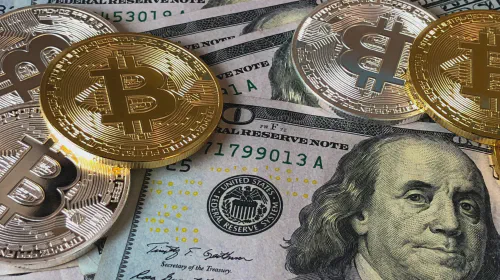Top Trends in B2B Digital Payments: Stay Ahead in the Evolving Landscape
Salomon Kisters
Jun 12, 2023This post may contain affiliate links. If you use these links to buy something we may earn a commission. Thanks!
In the current business landscape, the use of digital payments in B2B transactions has become increasingly popular. With the advent of new technologies and the shift towards a more efficient and secure way of doing business, it is no surprise that digital payments are on the rise.
As such, it is important for companies to stay abreast of the latest trends in B2B digital payments in order to remain competitive and relevant. This blog post will explore some of the most notable trends in the B2B digital payments space and what they mean for businesses in various industries.
From faster and more secure payment processing to the increasing use of blockchain technology, there are many exciting developments to keep an eye on. So without further ado, let’s dive in and take a closer look at the top trends in B2B digital payments.
The Rise of Mobile Payments in B2B Transactions
As mobile technology continues to advance, an increasing number of businesses are incorporating mobile payments into their B2B transactions. This trend is largely driven by the convenience and efficiency offered by mobile payments, as they allow businesses to make and receive payments quickly and easily on the go.
One of the key advantages of mobile payments is their accessibility. With most people carrying their smartphones with them at all times, businesses are able to make payments from virtually anywhere, at any time of day. This can be particularly useful for businesses with remote workers or those who frequently travel for work.
Another benefit of mobile payments is their speed. Traditional payment methods, such as checks or wire transfers, can take several days to process, whereas mobile payments can be completed almost instantly. This can help businesses to improve their cash flow and streamline their payment processes.
Despite these advantages, some businesses may still be hesitant to adopt mobile payments due to concerns around security. However, many mobile payment providers now offer robust security features, such as encryption and multi-factor authentication, to help keep transactions secure.
Adoption of Blockchain Technology in B2B Payment Processing
Blockchain technology is revolutionizing the way businesses make and receive payments, and it is already being adopted in B2B payment processing. Blockchain is a decentralized ledger system that enables secure and transparent transactions without the need for intermediaries like banks.
One of the key benefits of blockchain in B2B payments is that it eliminates the need for reconciliation, which is a time-consuming and costly process. With blockchain, all parties involved in a transaction have access to the same information in real-time, which reduces the risk of errors and disputes.
Another advantage of blockchain in B2B payments is its enhanced security. Transactions are cryptographically secured and cannot be altered once they are recorded on the blockchain. This means that payments are less vulnerable to fraud and cyber-attacks, providing businesses with greater peace of mind when conducting transactions.
Moreover, blockchain can also help to streamline cross-border payments, which traditionally involve numerous parties and intermediaries. By using blockchain, businesses can make cross-border payments quicker and cheaper, while also reducing the risk of fraud and errors.
Despite the many benefits of blockchain, its adoption in B2B payments is still in its early stages. However, as more businesses become familiar with the technology and realize its potential benefits, we can expect to see widespread adoption of blockchain in the coming years.
Advancements in Automated Payment Solutions for B2B Transactions
Another major trend in B2B digital payments is the increasing adoption of automated payment solutions. These solutions enable businesses to streamline their payment processes by automating tasks like invoicing, payment processing, and reconciliation.
For example, tools like a invoice generator can help small and medium-sized businesses quickly create professional invoices, making the invoicing process even more efficient.
By automating these tasks, businesses can reduce the risk of errors and save time and money on manual labor. Automated payment solutions can also improve cash flow management by providing real-time visibility into payments and enabling businesses to set up payment schedules and reminders.
One type of automated payment solution that is becoming increasingly popular in B2B payments is electronic invoicing (e-invoicing). E-invoicing allows businesses to send and receive invoices electronically, which can help to reduce paper waste and processing costs. E-invoicing also enables businesses to track invoice status in real-time and automatically generate payment reminders.
In addition, some businesses are adopting virtual card payment solutions, which allow them to make secure, one-time payments online without the need for a physical card. Virtual cards use unique identification numbers for each transaction, which makes them more secure than traditional payment methods like checks.
Advancements in automated payment solutions are making B2B payments faster, more secure, and more efficient than ever before. As businesses continue to embrace these solutions, we can expect to see even greater adoption and innovation in the world of digital B2B payments.
Growing Importance of Cybersecurity in B2B Payment Processing
As businesses continue to adopt digital payment solutions, the importance of cybersecurity in B2B payment processing has become increasingly evident. Cyberattacks and data breaches can result in significant financial losses, reputational damage, and legal liabilities for businesses, making it imperative to have strong cybersecurity measures in place.
One of the ways businesses can enhance their cybersecurity in B2B payment processing is through the use of multi-factor authentication. Multi-factor authentication involves the use of two or more authentication factors (such as a password and a text message code) to verify a user’s identity before allowing access to sensitive data or payment processing systems.
Another important cybersecurity measure is the use of encryption to protect sensitive data during transmission and storage. Encryption involves scrambling the data so that it can only be read by authorized parties with the proper decryption key.
Businesses also need to have strong internal controls in place to prevent fraud and mitigate the risk of cyberattacks. This includes regularly reviewing and updating access controls, monitoring for suspicious activity, and implementing employee training and awareness programs for cybersecurity best practices.
As the threat landscape evolves and cybercriminals become increasingly sophisticated, businesses need to stay vigilant and adapt their cybersecurity measures accordingly. By prioritizing cybersecurity in B2B payment processing, businesses can help protect themselves and their customers from the devastating consequences of cyberattacks and data breaches.
Integration of AI and Machine Learning in B2B Payment Systems
As the world becomes increasingly digitized, businesses are looking for ways to streamline their payment processing systems and improve their efficiency. One emerging technology that is gaining traction in the B2B payment space is the integration of artificial intelligence (AI) and machine learning.
AI and machine learning can help businesses optimize their payment processing workflows, reduce errors and fraud, and improve the accuracy and speed of their payments.
For example, AI-powered systems can automatically detect and flag anomalies in payment data, helping to prevent fraudulent transactions. Machine learning algorithms can also analyze historical payment data to identify patterns and trends, helping businesses make more informed decisions about payment processing.
Another benefit of AI and machine learning in B2B payment processing is the ability to automate tasks that were previously time-consuming and manual. For example, AI-powered systems can automatically match purchase orders with invoices and payments, reducing the need for manual intervention and improving accuracy.
Overall, the integration of AI and machine learning in B2B payment processing has the potential to revolutionize the way businesses handle their payments. By leveraging these technologies, businesses can improve their efficiency, reduce their risk of fraud, and gain valuable insights into their payment dat
Stay informed with the latest insights in Crypto, Blockchain, and Cyber-Security! Subscribe to our newsletter now to receive exclusive updates, expert analyses, and current developments directly to your inbox. Don't miss the opportunity to expand your knowledge and stay up-to-date.
Love what you're reading? Subscribe for top stories in Crypto, Blockchain, and Cyber-Security. Stay informed with exclusive updates.
Please note that the Content may have been generated with the Help of AI. The editorial content of OriginStamp AG does not constitute a recommendation for investment or purchase advice. In principle, an investment can also lead to a total loss. Therefore, please seek advice before making an investment decision.

What Is the Ethereum London Hard Fork and How Does It Impact Token Holders?
The Ethereum London Hard Fork is one of the most significant changes made to the Ethereum blockchain. Here is everything you need to know if you're holding Ethereum.

What is Blockchain Analytics, and How Does It Work?
You might have heard of data analytics before. But what is blockchain analytics, and how does it work?

Why Can There Only Be 21 Million Bitcoins? Impact of Bitcoin's Fixed Supply
Discover why there can only be 21 million Bitcoins and the impact of Bitcoin's fixed supply on inflation control and scarcity.
Protect your documents
Your gateway to unforgeable data. Imprint the authenticity of your information with our blockchain timestamp